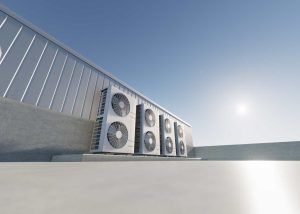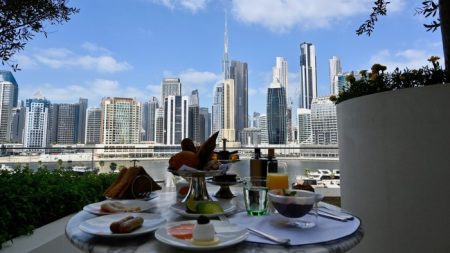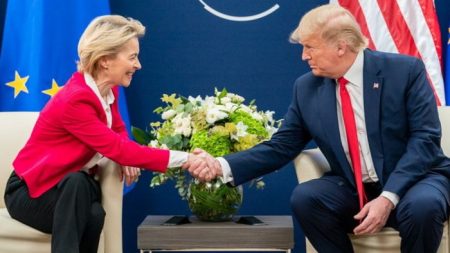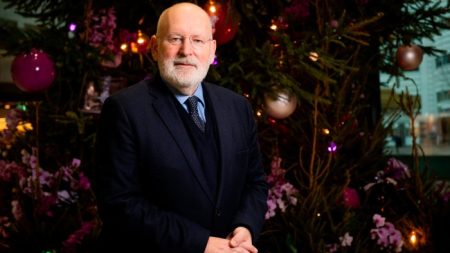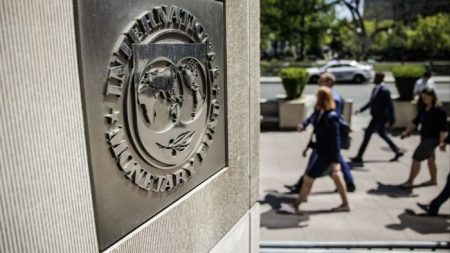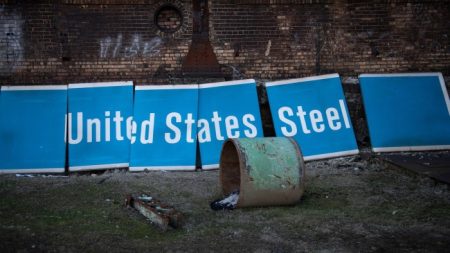Unlock the Editor’s Digest for free
Roula Khalaf, Editor of the FT, selects her favourite stories in this weekly newsletter.
Egypt and Israel were on Sunday in talks to resume aid deliveries to Gaza via its southern Rafah crossing as Israel pressed on with an offensive in the area despite an order to halt from the International Court of Justice.
The court on Friday described as “disastrous” conditions for those Palestinians still sheltering in Rafah, the strip’s southernmost city, where Israel has launched a ground offensive and air strikes despite the lack of safe havens left to which people can flee.
Humanitarian conditions for Gazans have become a point of contention between Israel and its allies, including the US, as well as playing a key role in the UN court’s decision to order Israel to take fresh interim measures.
On Sunday, the supply of aid from Egypt to Gaza resumed, but only via the separate Kerem Shalom crossing from Israel. Aid from Egypt had been halted for several weeks following Israel’s seizure of the Gaza side of the Rafah crossing between Egypt and the besieged strip earlier this month, and Cairo’s angry reaction to its offensive there.
Some 200 Egyptian aid trucks had crossed via Kerem Shalom into Gaza on Sunday, said Israeli military officials and Egyptian state media, after US President Joe Biden on Friday spoke with Egyptian President Abdel Fattah al-Sisi in an attempt to ease tensions.
The White House said talks were ongoing to “reopen the Rafah crossing with arrangements acceptable to both Egypt and Israel”, a move that would require the tactical redeployment of Israel Defense Forces (IDF) personnel in the area, said an Israeli official.
Israel has rejected the call by the UN’s top court for it to cease military operations in Rafah. The court also ordered Israel to reopen the Rafah crossing to Egypt for direly needed humanitarian aid, as Gazans struggle with acute shortages of food and other necessities.
About 1.2mn people had taken shelter in Rafah from Israeli attacks elsewhere in the strip after Hamas’s October 7 assault on Israel triggered the war. But at least 800,000 of those have now been forced to flee again, according to the UN. They have travelled to areas that are designated “safe zones” but lack basic services such as clean water and medical care, according to international aid groups.
Josep Borrell, the EU’s chief diplomat, on Sunday called the situation in Gaza “beyond words” as he spoke in Brussels alongside the Palestinian prime minister, Mohammad Mustafa.
The Israeli military claimed on Sunday that aid entering Gaza had doubled from the previous week, and that supplies had included 300,000 litres of fuel to run essential services at shelters and hospitals.
Israeli Prime Minister Benjamin Netanyahu has rejected calls for a halt to Israel’s offensive, along with accusations of war crimes by the prosecutor of the International Criminal Court, who last week requested arrest warrants against him and his defence minister.
Netanyahu maintains his forces will pursue “total victory” against Hamas.
The Palestinian militant group fired long-range rockets at central Israel, including past Tel Aviv, on Sunday for the first time in months, in a demonstration of the capabilities it retains despite the Israeli campaign. The IDF said later that eight rockets were fired from Rafah.
Benny Gantz, a member of Netanyahu’s war cabinet, said: “The fire from Rafah today proves that the IDF has to operate in every place that Hamas is located.” Israeli officials insist military action in Rafah is needed to eliminate the last four standing Hamas battalions and sever the group’s access to smuggling routes from Egypt.
Israeli special forces have in recent weeks also retrieved the bodies of six hostages held by Hamas since October 7. According to Israeli officials, 125 Israeli and foreign nationals are still being held in Gaza, with 39 confirmed dead.
Negotiations for their release as part of a ceasefire deal tentatively resumed at the weekend in Paris as the head of Israel’s Mossad, David Barnea, met CIA chief Bill Burns and Qatar’s prime minister Sheikh Mohammed bin Abdulrahman al-Thani.
Previous talks collapsed earlier this month as mediators struggled to close the gap between the warring parties, primarily over whether any agreement would fully halt the conflict or simply pause it. Netanyahu has rejected any provision that would stop the war.
The Israeli official said discussions in Paris focused on “building a foundation” to allow “renewed negotiations” based on new proposals led by US, Qatari, and Egyptian mediators.
Additional reporting by Henry Foy
Read the full article here
